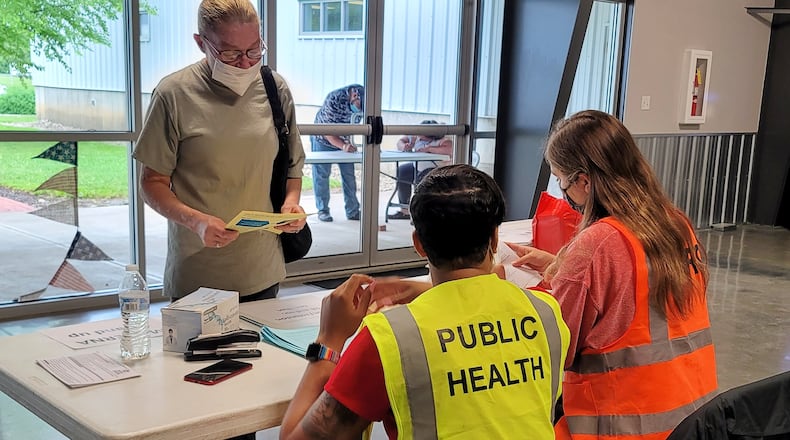While Dr. Jeffrey Weinstein, Kettering Health patient safety officer, said hospitals don’t anticipate things getting as bad as last winter, it’s hard to calculate what will happen. People sick from the Delta variant on average are estimated to infect more people than the original strain, which gives it the ability to exponentially take off, he said.
“The flip side of it is that, because we’re looking at younger people, they are probably less likely to get hospitalized. But a competing factor there is that the Delta strain does seem to cause more severe disease,” said Weinstein. “So it’s a really difficult calculation to make, with how bad it’s going to get based on those competing factors.”
The coronavirus pandemic, including the fast spreading Delta variant, has been sending a growing number of patients to the hospital in recent weeks. However, the numbers remain dramatically lower than the brutal winter peak that stretched health care capacity and health worker endurance.
“It’s not nearly as many people as what we were seeing previously. That was really bad,” said Dr. Joseph Allen, regional medical director for Premier Health.
One difference between the current increase in cases and past surges is the availability of effective vaccines. Almost all local patients sent to the hospital with COVID-19 have not been vaccinated.
Nearly 49% of Ohioans have at least started a vaccination, or about 5.69 million people. This includes more than 80% of those 65 and older. Vaccination rates vary widely between communities, however.
The rate of new vaccinations has slowed but not stopped. As of Thursday morning, around 1,300 new people had started a vaccine in the last 24 hours in the nine-county Miami Valley region.
Several local doctors said that getting vaccinated is still the best bet to fend off COVID-19, even with new variants of the coronavirus circulating.
The highly transmissible Delta variant in particular has been helping fuel a recent rise in U.S. cases and taking off in unimmunized pockets. Statewide, the daily case count for Thursday reached 800 for the first time this month.
“If you didn’t get the immunization and choose not to get it for various reasons, make sure that you’re getting the appropriate information you need to make that decision,” Allen said. “As things change, maybe it does change your view on that.”
Allen said Moderna and Pfizer vaccines, which is the option the majority of people in the region received, has been holding up well against the Delta and other variants.
The one-dose Johnson & Johnson vaccine may not be holding up as well against the Delta variant in protecting against getting symptoms, though it continues to be studied. Even if a vaccine doesn’t protect a person from symptoms, it can still prevent the disease from worsening.
Meanwhile, Weinstein said Kettering Health has capacity at area hospitals, but don’t want to get back to a situation where 10% or 20% of beds have COVID-19 patients.
“Over the last couple of months, all of the hospitals in Ohio, including ours have been scaling back our COVID units. And now we’ve had to start reopening COVID units,” Weinstein said.
Looking for a COVID-19 vaccine?
Search Vaccines.gov, text your ZIP code to 438829, or call 1-800-232-0233 to find vaccine locations near you.
About the Author


